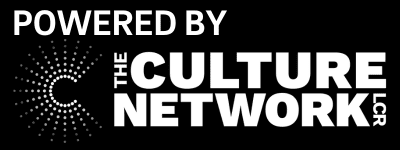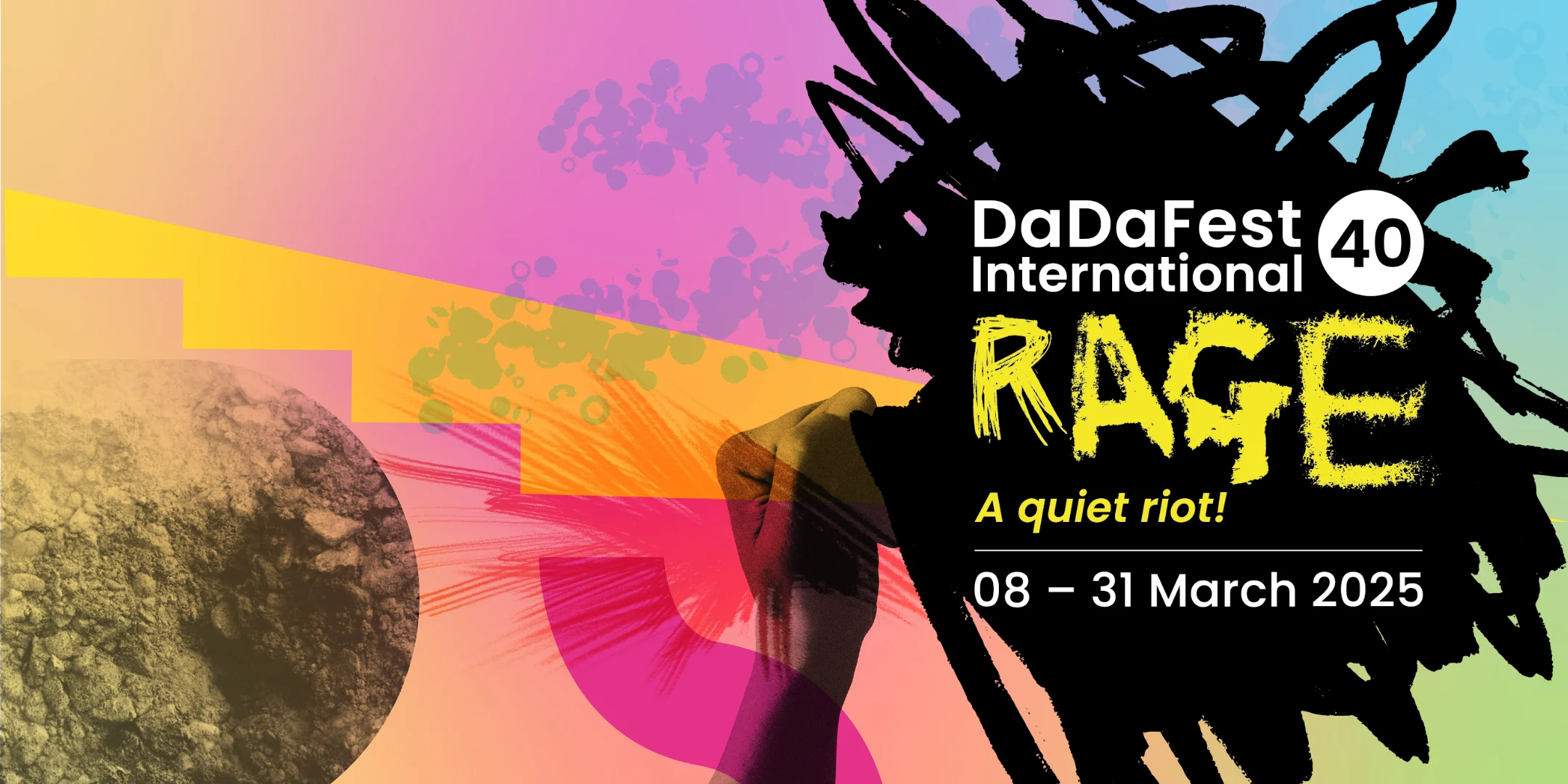
For 40 years, DaDa has led the way in amplifying Disability and Deaf arts, creating transformative platforms for disabled artists. We spoke with Interim CEO Zoe Partington to reflect on the organisation’s journey since its beginnings as Arts Integrated Merseyside, a branch of SHAPE Arts, to its evolution into DaDa and the launch of DaDaFest.
In this interview, Zoe highlights the milestones DaDa has achieved, their ongoing advocacy for equity in the arts, and their bold vision for a cultural landscape that truly values inclusivity and representation, especially as they prepare for their 40th anniversary festival in 2025.
Uncover Liverpool: DaDa has been a trailblazer in supporting Disability and Deaf arts for 40 years. How has the organisation evolved since its inception in 1984, and what are some of the biggest milestones you’ve achieved?
Zoe Partington: Arts Integrated Merseyside (AIM) was set up as a regional branch of the London-based SHAPE Arts back in 1984, and in 1986, AIM broke away and became and independent organisation, The North West Disability Arts Forum or NWDAF.
NWDAF established itself as a cross art form organisation led by disabled artists advocating for disability rights, equitable access to the arts and arts training and developing bespoke support for disabled artists to develop their own practice.
During this period, the organisation began to share the Social Model of Disability as a positive and pro-active way of building understanding among partner organisations and audiences, which was pioneering in approach and something DaDa (as it is now known) is deeply proud of advocating for still today.
Most notably, in 2001, NWDAF Director Ruth Gould (now Fabby) set up and delivered the first DaDaFest in Liverpool. The festival promoted disabled artists in ‘mainstream’ venues and presented artist work as having equal value in terms of artistic quality and political and social impact.
Working with Liverpool venues and arts organisations as partners, NWDAF presented a diverse programme that brought disabled artists from across the UK together to celebrate disability arts and provide a forum for discussion and debate.
The festival also worked to remove barriers for disabled audience members to attend events by offering BSL translation, Audio description and support with transport to and from venues.
The event was a success for the organisation and for the city of Liverpool and provided a home for UK disability arts. The festival grew quickly to include international artists and soon shifted to a Biennial format to offer time for artists to create work and to secure adequate funds to support the development of the work and artists access requirements.
There have been 13 DaDaFest International festivals to date hosting over 500 events celebrating the work of disabled artists, so the impact of this on the disabled art community has been huge, and DaDaFest remains the longest running disability arts festival in the UK.
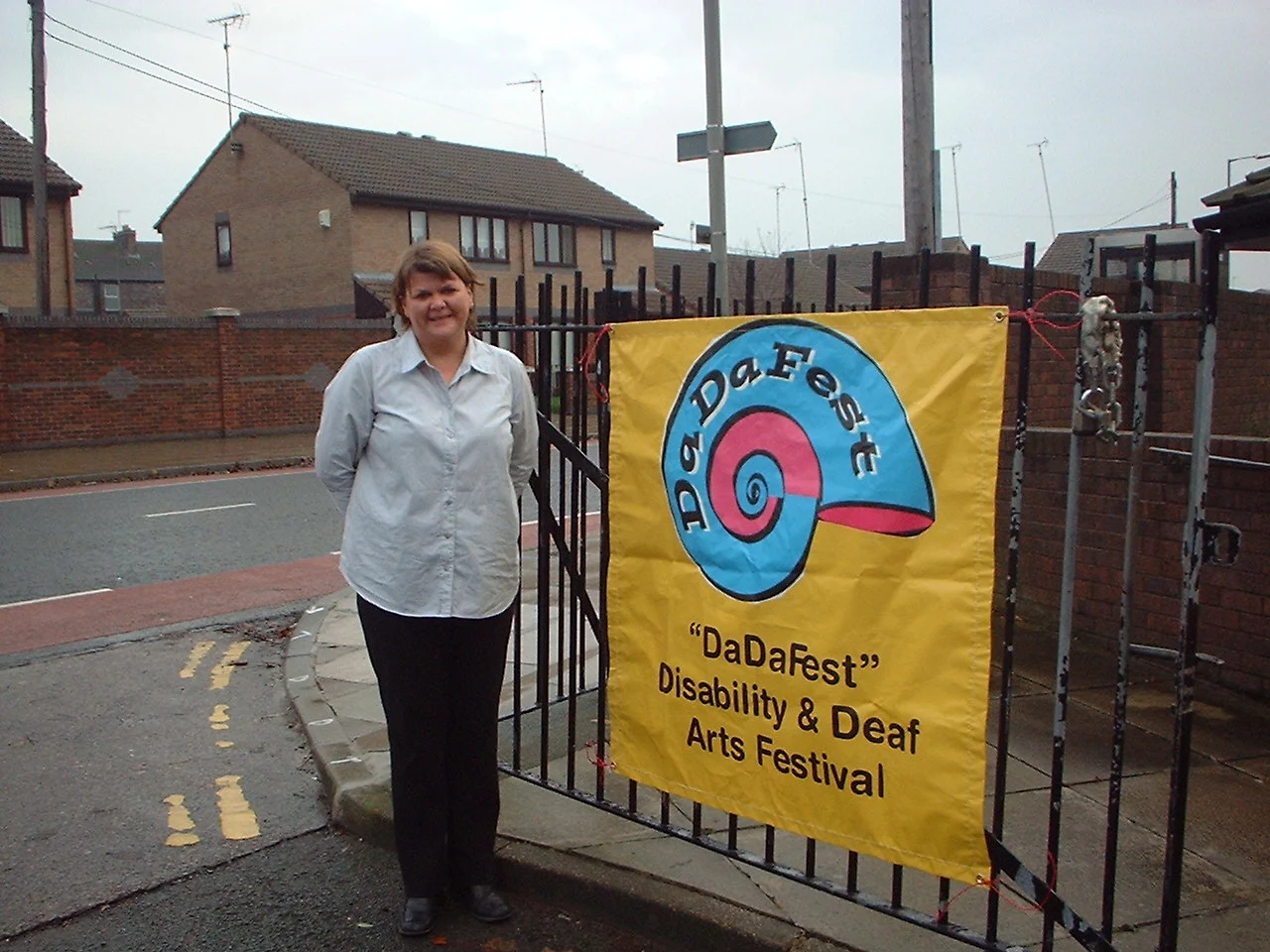
Uncover: Your vision of ‘Equity and Excellence in the Cultural Landscape’ is incredibly powerful. Could you share how you’ve seen this vision come to life in the Liverpool arts scene over the years?
Zoe: Beyond the festival and DaDa’s ongoing artist development work, DaDa have offered consultancy support and insight to arts organisations seeking to improve access and inclusion.
Locally we’ve worked alongside organisations such as Liverpool City Council around policy making for access to services and transport. When Liverpool Everyman and Playhouse Theatres took on a huge capital redevelopment project of their Everyman site, DaDa consulted on the accessibility of the building making it one of the most accessible theatres in the North West.
We’ve had an ongoing partnership with Liverpool Philharmonic for more than six years which is changing perceptions of disability and how they make their programme and educational work more inclusive. Similarly we’ve worked with Unity Theatre for more than 20 years changing perceptions of disabled artists and how they now support disabled artists and producers independently.
We’ve consulted internationally in USA, Canada, Armenia, India and Palestine around arts and access and currently are working with partners in Indonesia and Brazil for the forthcoming festival and have forged partnerships with USA and Singapore to develop future work. These international connections spread our Liverpool roots, creating wide reaching impact with our work, and offer us the opportunity to continue to learn and grow as an organisation so we can feed that learning into the local arts and culture scene.
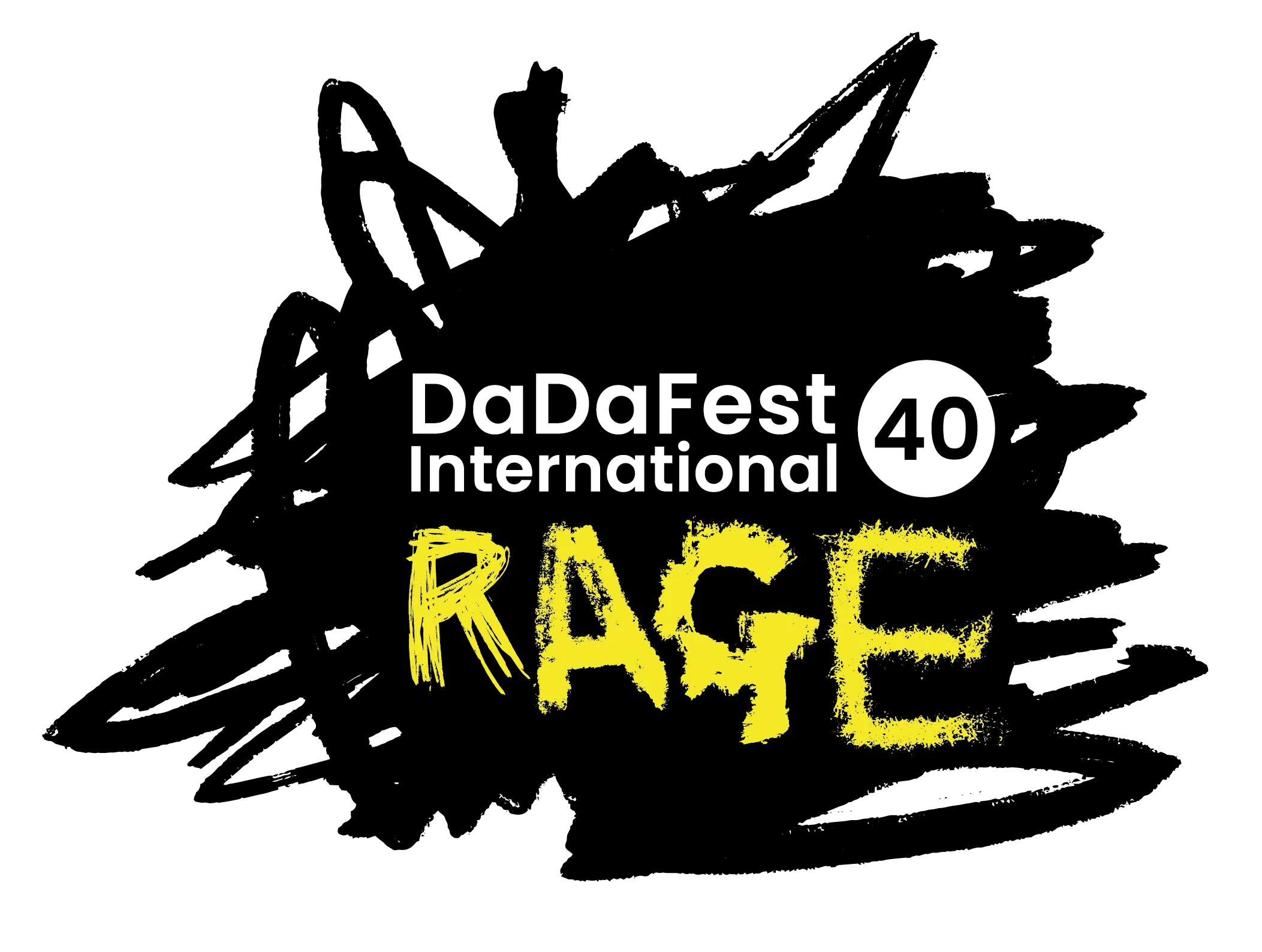
Uncover: The theme for this year’s festival is ‘Rage: A Quiet Riot’. Could you explain why this theme was chosen and what it represents for the disability and Deaf arts community?
Zoe: DaDaFest International 40 coming in March 2025 and will explore ‘Rage: A Quiet Riot!’. Rage is something many disabled artists and individuals within our community feels.
There is a sense of exhaustion and hopelessness that we encounter in conversations often. There’s a feeling of deep rage that what felt progressive and forward-focused in terms of rights and access and attitude decades ago is being eroded and we are being pitted against each other again. There is unspoken rage at the hidden hierarchy in wider disabled communities, often exacerbated by systems that reinforce how valuable or invaluable disabled people are by invoking a scoring scale to decide who needs what most.
After consulting with artists, DaDa heard loud and clear that our community feel that, while some progress has been made, too many decisions are still made without involving disabled people. This has left disabled artists and disabled communities raging that the gaps in society are widening and we are still so far from equity and representation at all levels in art, culture and heritage. Often neglected, ignored and discriminated against at the highest levels in the arts sector, community and government at cultural level.
In her poem “I Want More Disabled Rage” disabled artist Dolly Sen says:
“We need our disabled rage.
No more being accommodating as they take away right after right.
Let’s have assisted rage and tear up the page of ableism and turn it into confetti for the wedding of ourselves to our lives in a world that wants to strip us down until only our pain stays standing.”
DaDaFest International 40 will showcase work by disabled artists that captures all shapes and sides of rage. From the internal quiet frustrations and righteous rage, to overt injustice and activism, DDFI40 will explore disability rights, disability arts, access, ableism and ‘Rage’ in an explosion of creativity.
In 2025 and beyond, the festival will continue to provide a safe space for artists to share work and discuss relevant issues, to offer valuable networking opportunities for disabled artists across the arts sector in Liverpool and beyond and, importantly, to bring a high profile UK platform exclusively for new and existing work by disabled artists.
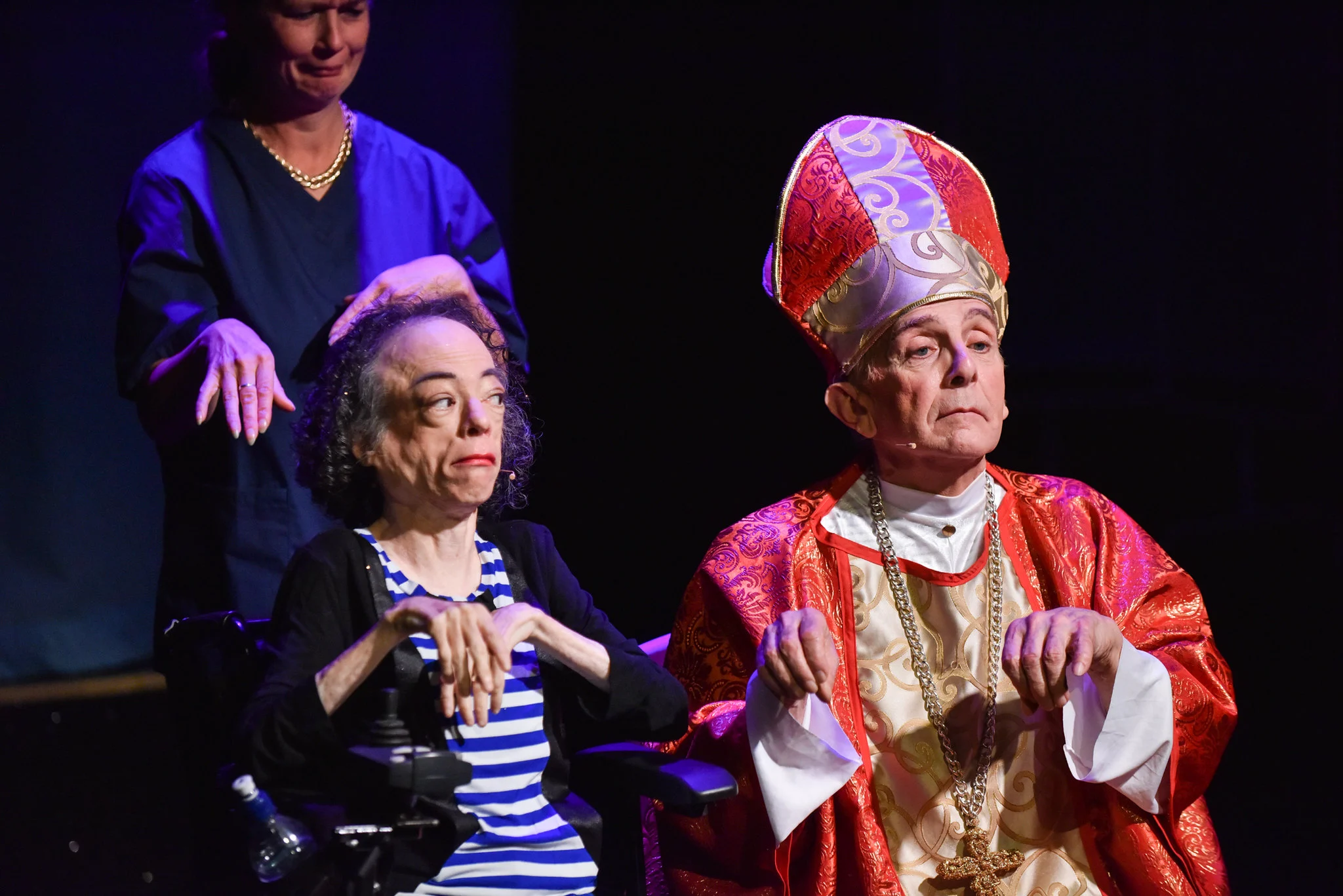
Uncover: November marks Disability History Month. What role does DaDa play during this month, and how do you think art can help further the conversations around disability rights and equity?
Zoe: This disability history month we will be launching DaDaFest International 40 at the Unity Theatre on 29 November with two events, our launch party at 5.30pm followed by a live performance by Deaf performance artist, choreographer and BSL art guide Chisato Minamimura ‘Mark of A Woman’.
Mark of A Woman is a live performance project by Chisato Minamimura, celebrating and exploring personal histories & authentic accounts of the undertold relationships between women and tattooing cultures. Using Visual Vernacular, digital animation, kinetic projection and Woojer™ technology, this is an exciting, accessible new exploration into women’s social, cultural and historical relationships to body marking.
We hope these two events will start a conversation that we will continue through our annual Edward Rushton Social Justice Lecture on 3 December, International Day of Persons with Disabilities, with Kaite O’Reilly that will explore the theme of Rage within a disability arts context, and ongoing through the festival and beyond.
We will be running online campaigns alongside this to widen the reach of the conversation, and invite people to join in sharing their experiences, art and rage with us.
In 2024 approximately 25% of the UK population are disabled and 46% of disabled people are not in work. At a time when fear and discrimination against difference appears to be on the increase, DaDa are committed to using the festival as a platform to influence change. We believe prioritising disability access is a social issue that benefits everyone.
We have also made a commitment to develop our Digital offer as a tool to increase access to our programme to disabled artists and audience members as well as to our international audiences.
As the longest running disability arts festival in the UK and a charity with a 40 year legacy of advocating for disability rights and access within the arts, we don’t underestimate how important it is for us to lend our voice to these important conversations, and stand shoulder to shoulder with other organisations making waves within this space. We are keen to continue to build on these relationships and invite those who share our passion to connect with us, work with us, share expertise and raise our voices to create a quiet riot that ripples through systems and societies to create real change with lasting impact.
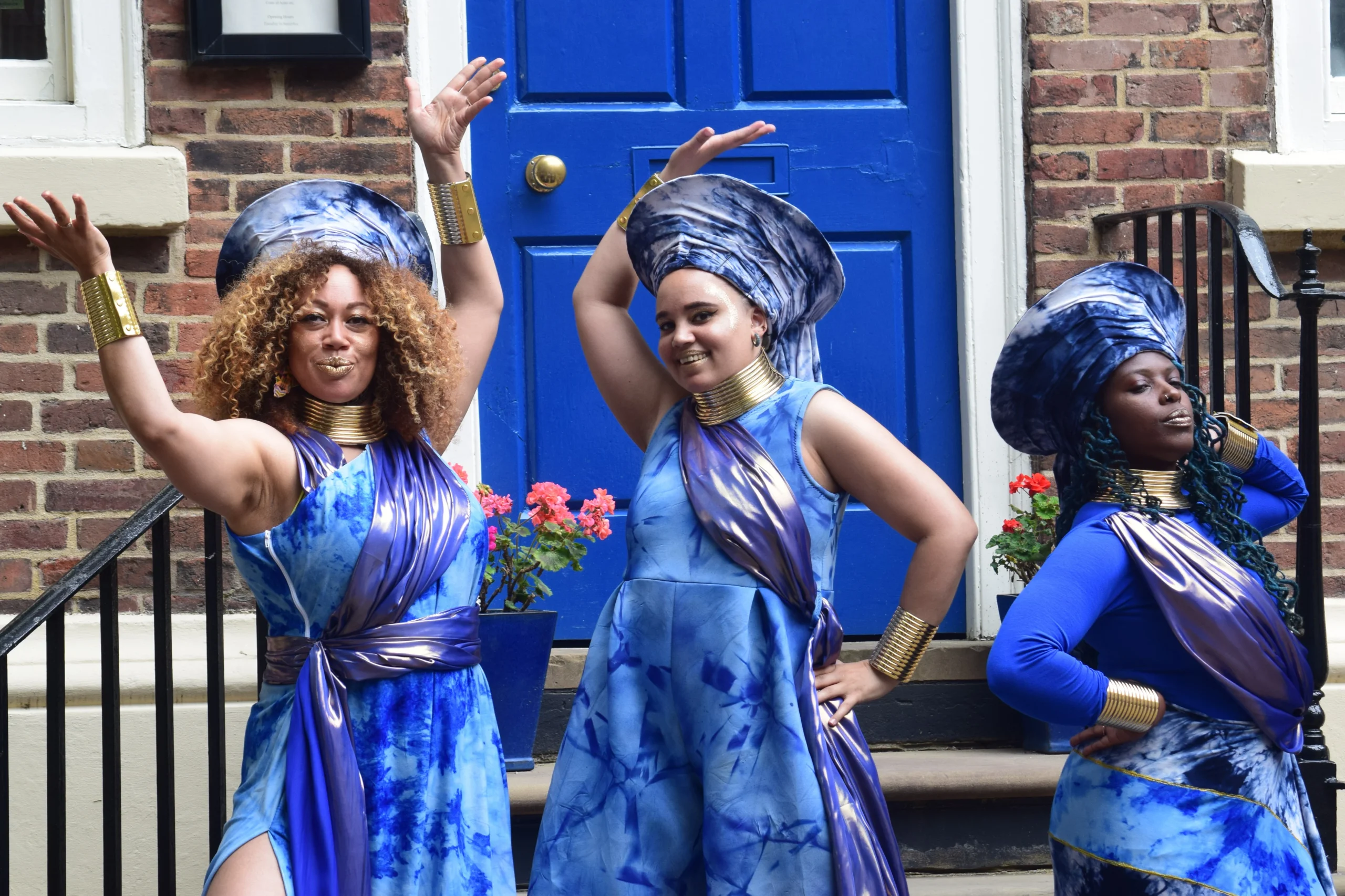
Uncover: What do you hope audiences take away from engaging with DaDa Fest’s work, especially during the landmark year of the festival?
Zoe: Our organisational ethos blends the social and cultural model of disability continuing to push for social change and an understanding that disability is a social issue affecting us all as well as acknowledging that as disabled artists, activists and practitioners our thinking and methodology still sits outside the mainstream arts practice and policy making.
Through our work we hope to spark conversations, elevate understanding of the social model of disability, the ableism and systemic failures that stand in the way of equity, and stir up disabled and non-disabled people to ask questions and lend their voice and creativity to these conversations.
We also of course hope people just really enjoy the innovative art that will be presented by the disabled artists we work alongside, as it is our 40th birthday celebration and we intend it to be a real celebration.
So many people disabled and non-disabled have played a part in the pioneering work of DaDa over the last 40 years, and so we hope people share in that, feel a part of it, share their memories and hopes for the next 40 years, and join us in the biggest party we’ve ever thrown.
Uncover: What are the next steps for the organisation in continuing to push for social justice through the arts?
Zoe: Progress towards real equality for disabled people over the past twenty years is insufficient and “littered with missed opportunities and failures”.
That was according to the Chair of the Equality and Human Rights Commission following the publication of Being disabled in Britain: A journey less equal in 2017, the most comprehensive analysis ever on how the rights of disabled people are protected in Great Britain. And since then little has improved. In fact Disabled people earn less and have higher living costs on average than those who are not disabled, so it is unsurprising that the cost-of-living crisis had more of an impact on disabled people and is having ongoing economic impact.
This is where the ‘Rage’ many of our artists expressed stems from, and we believe it is time for change.
As a disability arts organisation we are committed to doing this in a few ways.
- Through our artist development programmes, working with disabled artists to hone their craft, building access to opportunities and platforms to present their work.
- Engaging directly with disabled and Deaf artists and communities to ensure every aspect of our work reflects the wants and needs of disabled and D/deaf people.
- Advancing public education in the arts, raising awareness and understanding about disability access issues through art by presenting our festival programme and events between, and working alongside cultural organisations deepening their commitment to access in the arts.
- Working in collaboration with other arts organisations to support changes in practice in order to widen access to arts and culture activity in Merseyside and beyond.
It is only recently female disabled artist Bobby Baker has been recognised in the Arts Council England collection, a groundbreaking moment for disability art. It’s artists like Bobby Baker and many others, that DaDa as a grass roots organisation has supported over 40 years, ensuring disabled people are being represented in our histories and societies. Young disabled people need role models and disabled artists in their everyday lives to feel valued and connected and have aspirations to be part of all our futures in the city, without pity, exhaustion and exclusion. DaDa cannot do this on our own we need collaboration and support.
So we encourage disabled artists, arts and cultural organisations committed to improving access, and anyone else who resonates with our mission to empower disabled artists, to push for societal attitude change and to foster and embed inclusive access across all areas of arts and culture to connect with us, support us and together we can create a quiet riot with lasting impact.
DaDaFest International 40 Launch takes place at Unity Theatre on 29 November.
To find out more about DaDa and DaDaFest International 40 visit dadafest.co.uk.

